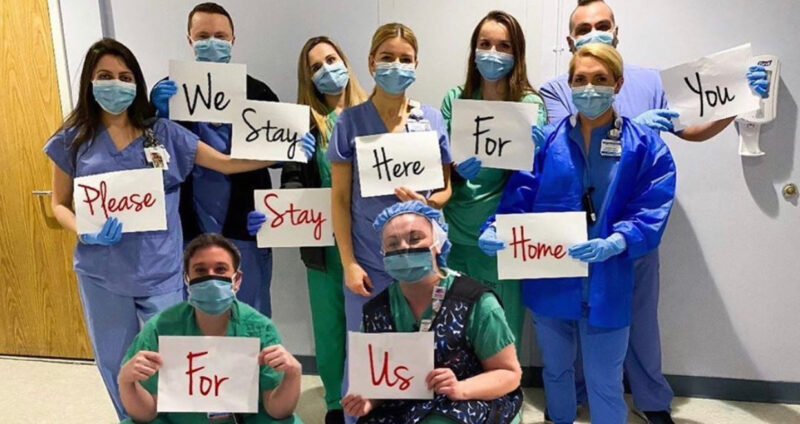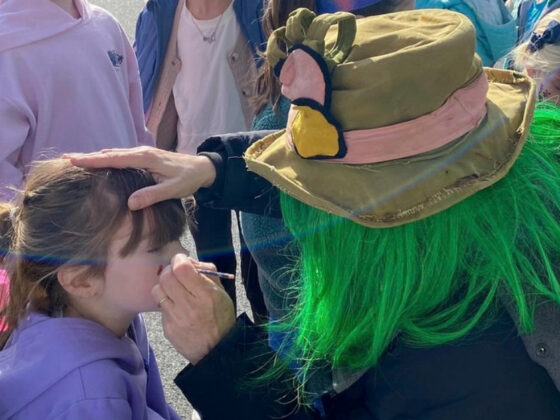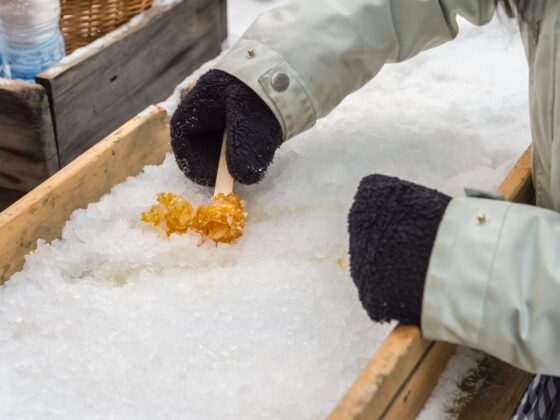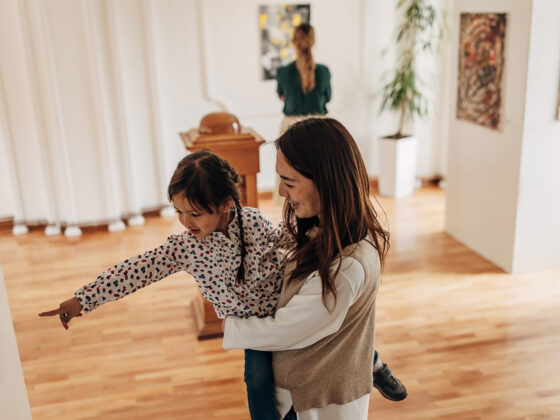As the number of cases of COVID-19 in the U.S. continues to rise, hospitals and healthcare workers are overwhelmed and overworked. That’s why now more than ever they need our help. We know you have a lot on your plate and adding one more thing seems like a lot—but it can be as simple as donating $10 to a restaurant bringing meals to hospitals or sending messages of gratitude and support to your local healthcare workers. Read on for some simple ways to help out:
featured image via @saintbarnabasnj
https://www.instagram.com/p/B-XHfM8p3u9/?igshid=iidxb0ymfm9o
Help make and donate personal protective equipment to local hospitals
As the number of virus cases increases throughout the state and the country, hospitals are quickly running out of medical supplies and PPE (personal protective equipment). If you have any type of extra medical supplies lying around or you’re able to find any at a store, like surgical masks, rubber gloves, liquid soap, hand sanitizer, disinfectants and wipes, protective goggles, surgical gowns, and face shields, you can donate to local hospitals, like Saint Barnabas Medical Center by emailing gifts@rwjbh.org for a drop-off location. Belle Threads in Hasbrouck Heights is also creating a tutorial on how to make fabric face masks to donate to local hospitals. You can get the kids involved for a fun activity that will keep them busy and help them also feel like they’re helping out.
https://www.instagram.com/p/B-Kl0UXgrrl/?igshid=1cx7k3krf5clz
Help feed overworked hospital workers by donating to restaurants providing free meals
Places like Freshii in Middletown and Local Smoke BBQ (Red Bank, Neptune, Cookstown, and Seaside) are accepting donations to feed and fuel healthcare workers at a time where they are being worked to exhaustion. If 15 people donate just $10, Local Smoke will be able to send out enough food to feed 40 workers at the hospitals. Also, don’t be afraid to reach out to your local restaurants to see if they are hosting a food fund for hospital workers.
https://www.instagram.com/p/B-SIxCugEFI/?igshid=1jzkqlq2d7izu
Send messages of gratitude and support
Join in as we all share a round of applause and appreciation for the brave men and women in the healthcare field, who are risking their lives to save lives. People around the world are posting videos to their social media clapping to show their appreciation for all the courageous healthcare workers. If you’re not into posting on social, simply send that friend or loved one that works in the healthcare industry a quick text or voicemail telling them how grateful you are and to offer help in any way you can.
Continue following quarantine and social distancing standards
Staying home and continuing to practice social distancing helps healthcare workers by flattening the curve and preventing hospitals, their staff, and limited resources from becoming so overwhelmed.
Donate blood
You may think otherwise, but it’s more important than ever to be donating blood. Since people aren’t leaving their homes and blood drives are being canceled, hospitals are rapidly running out. Although blood may not necessarily be helping those with COVID-19 related health concerns, the world continues to spin and patients who have been in car crashes, emergency surgery, and are battling other illnesses, continue to need blood donations to survive. Click here to find out the closest center to you and make an appointment.
https://www.instagram.com/p/B-KiqQyjtED/?igshid=1hl5obrude4ec














2 comments
It’s great to know that I can straight up just buy supplies to donate to healthcare workers instead of sending monetary aid. My brother is a volunteer nurse and has been risking his health everyday for the past month. I hope my donations will make a difference someone in making people like him be more motivated to continue on despite how stressful the whole situation is.
Thank you, Alice, for all you are doing to support frontline workers! And a huge thank you to your brother for helping out those in the greatest need right now. He’s a true hero!